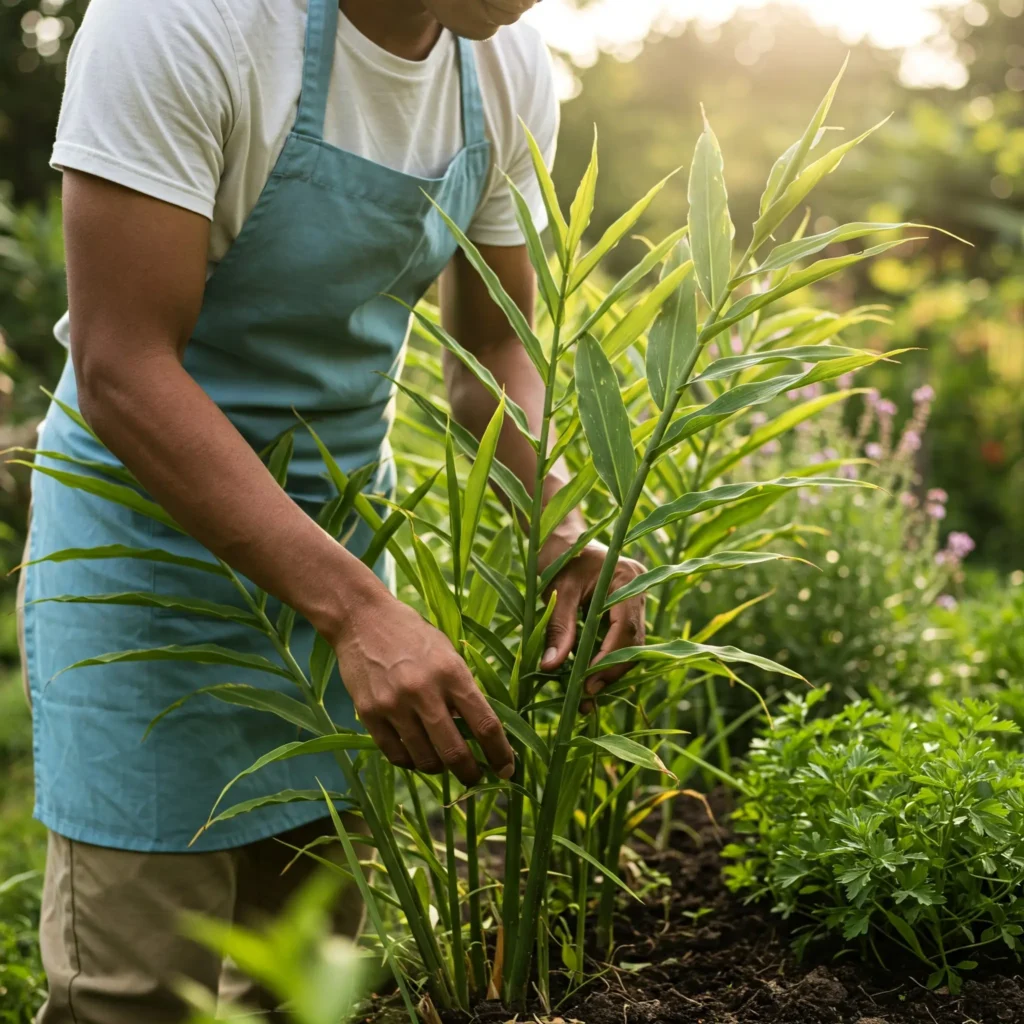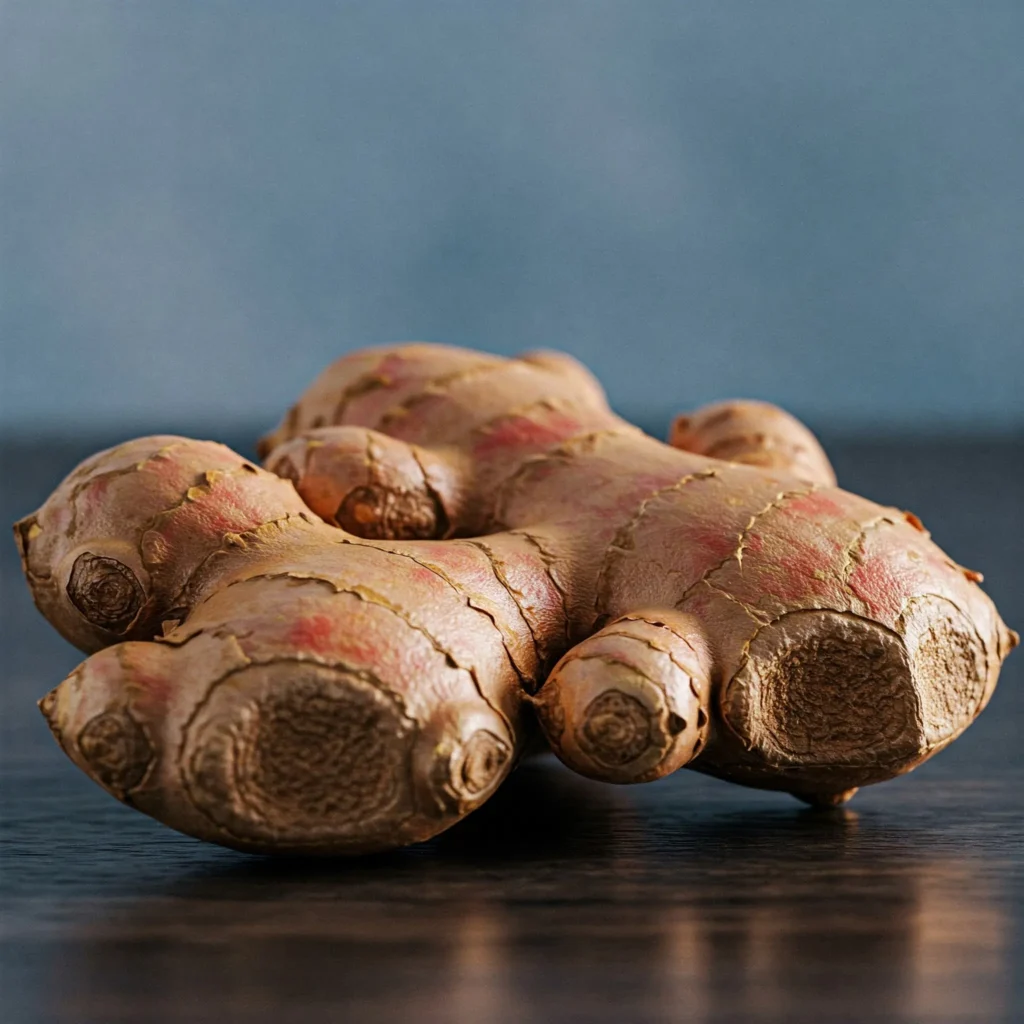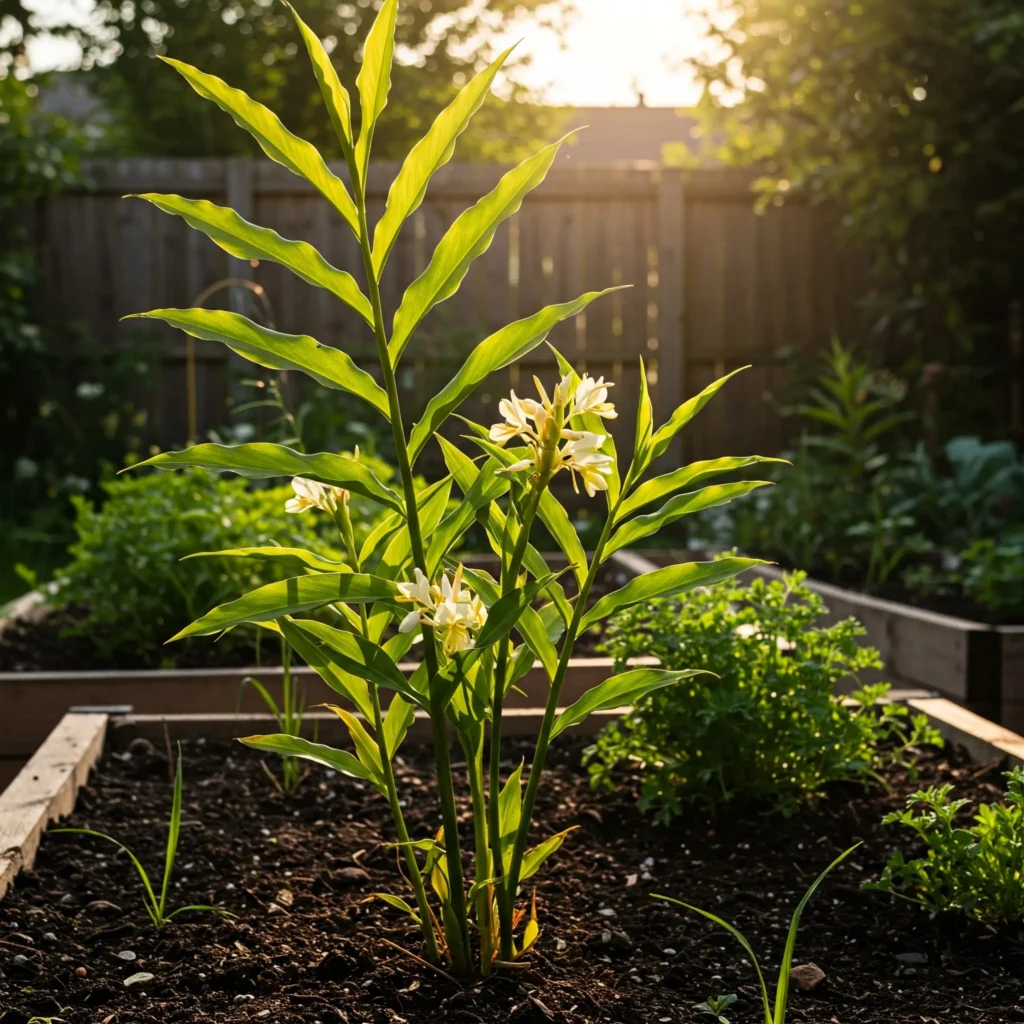Ginger is a pungent root that is used in many cuisines around the world. It is also a popular ingredient in herbal remedies. Ginger is a tropical plant, but it can be grown in warm climates or in pots indoors. Discover the health benefits of ginger, a pungent root used for culinary and medicinal purposes for centuries.
Health Benefits of Ginger
- Nausea Relief: Ginger is a well-known remedy for nausea, including morning sickness, motion sickness, and nausea caused by chemotherapy.
- Anti-Inflammatory: Ginger contains compounds with anti-inflammatory properties, which can help reduce pain and swelling associated with conditions like arthritis and muscle soreness.
- Digestive Aid: Ginger can help stimulate digestion and reduce bloating, gas, and indigestion.
- Immune System Support: Ginger’s antioxidant properties help to boost the immune system and protect against infections.
- Pain Relief: Ginger has analgesic properties that can help to relieve pain, including menstrual cramps, headaches, and migraines.
- Heart Health: Ginger may help to lower cholesterol levels and blood pressure, reducing the risk of heart disease.
- Antioxidant Powerhouse: Ginger is rich in antioxidants, which help protect cells from damage caused by free radicals.

Ways to Consume Ginger
- Fresh Ginger: Add fresh ginger to stir-fries, soups, and sauces. You can also grate it into hot water for a soothing ginger tea.
- Dried Ginger: Ground ginger powder can be used as a spice in cooking or added to smoothies and baked goods.
- Ginger Supplements: Ginger supplements are available in various forms, including capsules, tablets, and liquid extracts.
- Ginger Essential Oil: Ginger essential oil can be used topically for muscle aches and pains or added to a diffuser for aromatherapy.
Important Considerations
- Consult with a Healthcare Professional: If you have any underlying health conditions or are taking medications, consult with your doctor before using ginger in medicinal amounts.
- Blood Thinners: Ginger may increase the risk of bleeding, so it should be used with caution by people taking blood thinners.
- Pregnancy: Pregnant women should consult with their doctor before consuming large amounts of ginger.
What You Need to Grow Ginger
- Ginger root
- Potting mix
- Pot or container
- Water

How to Grow Ginger
- Choose a healthy ginger root. The ginger root should be firm and plump, with no signs of mold or rot.
- Prepare the ginger root for planting. Cut the ginger root into pieces, each with at least one “eye” or growth bud.
- Plant the ginger root pieces in a pot filled with potting mix. Bury the pieces about 1 inch deep.
- Water the ginger root well.
- Place the pot in a warm, sunny location.
- Keep the soil moist but not soggy.
- After about 2-3 weeks, you should see green shoots emerging from the soil.
- Once the ginger plant is about 6 inches tall, you can start to harvest the leaves.
- To harvest the ginger root, wait until the plant has flowered and the leaves have turned brown.
Tips for Growing Ginger
- Ginger prefers warm temperatures, so it is best to grow it in the spring or summer.
- You can also grow ginger indoors, but it will need plenty of light.
- Ginger is a tropical plant, so it needs moist soil. However, it is important not to overwater the plant, as this can lead to root rot.
- You can fertilize your ginger plant with a balanced fertilizer once a month.
- Ginger is a perennial plant, so you can harvest the leaves and roots for many years to come.
Ginger is a versatile plant that can be used in many different ways. You can use the leaves to make tea, and the roots can be used to flavor food or make ginger ale.
Here are some additional tips for growing ginger:
- Choose a pot that is at least 12 inches deep.
- Use a well-draining potting mix.
- Water the ginger plant regularly, but do not overwater.
- Fertilize the ginger plant once a month with a balanced fertilizer.
- Harvest the ginger root when the plant is about 8-10 months old.
Growing ginger at home can be a rewarding experience, but it’s not always the easiest. Here’s a breakdown:
Challenges:
- Tropical Plant: Ginger is a tropical plant that thrives in warm, humid conditions. If you don’t live in a tropical climate, providing the right growing environment can be challenging.
- Time-Consuming: It takes several months for ginger to mature, requiring consistent care and attention.
- Disease and Pests: Ginger plants can be susceptible to diseases and pests, which can affect their growth and yield.
- Space Requirements: Ginger plants can grow quite large, so you’ll need adequate space to accommodate them, especially if you’re growing them indoors.
Tips for Success:
- Start with High-Quality Ginger: Choose firm, plump ginger roots with visible “eyes” (growth buds).
- Provide Warmth and Humidity: Maintain warm temperatures (around 70-85°F) and high humidity. You can use a greenhouse or a humidifying tray to create a suitable environment.
- Use Well-Draining Soil: Ensure the soil is well-draining to prevent root rot.
- Water Consistently: Keep the soil consistently moist, but avoid overwatering.
- Provide Adequate Sunlight: Ginger plants need bright, indirect sunlight.
- Be Patient: It takes time for ginger to grow. Be patient and consistent in your care.

Overall:
Growing ginger at home can be a rewarding but challenging endeavor. If you’re a dedicated gardener with the patience and resources to provide the right growing conditions, you may be successful. However, it’s important to be realistic about the time, effort, and potential challenges involved.
Consider Alternatives:
If you’re looking for a more convenient way to enjoy fresh ginger, you could consider:
- Buying organic ginger: This ensures that the ginger was grown without the use of harmful pesticides.
- Growing ginger in a small container: This can be a more manageable option for those with limited space.
- Supporting local farmers: Consider purchasing ginger from local farmers who grow it sustainably.
By carefully considering your resources and expectations, you can make an informed decision about whether growing ginger at home is the right choice for you.
Growing your own ginger is a rewarding experience. With a little care, you can enjoy fresh ginger all year round.
Disclaimer: This information is for educational purposes only and does not constitute medical advice. Always consult with a qualified healthcare professional for any health concerns or before making any decisions related to your health or treatment.



